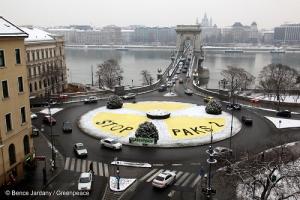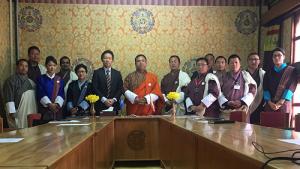Environment
Commission green light for Paks state aid ignores Orbán takeover of nuclear regulator

- Read more
- 332 reads
Over 150 civil society groups call for reform of European agricultural policies
Over 150 European civil society organisations representing environmental and social justice networks, organic farmers, pastoralists, peasants, sustainable forestry groups, health groups, animal welfare organisations, consumer rights bodies, development, fair-trade, cultural heritage and rural development organisations, consumer co-operatives, sustainable tourism and crafts associations from 25 EU countries have called on EU leaders to carry out a radical reform of the CAP and related policies, on March 6.
- Read more
- 331 reads
Fate of protected area in northwest Russia in the hands of consumer brands
Major western European and American companies are connected to logging companies expanding their operations into one of the largest tracts of undisturbed primary forest in Arkhangelsk Oblast of northwest Russia, a Greenpeace report reveals.
- Read more
- 311 reads
Project Signing: Royal Government of Bhutan and World Bank Sign US$1.5 Million Grant to Prepare Program to Improve Bhutan’s Climate Resilience

- Read more
- 405 reads
Using EU trade tools to combat wildlife trafficking
Recommendations on how to make better use the EU’s trade tools to fight an unprecedented surge in wildlife trafficking were approved by MEPs on Thursday.
- Read more
- 318 reads
New images show what is at stake if Brazil rolls back Amazon protection
As the Brazilian government weighs stripping several conservation areas in the Amazon of their protection, Greenpeace Brazil has documented the forest that could be lost and the threats it faces. Slashing protection would leave one million hectares of forest vulnerable to further deforestation and biodiversity loss.
- Read more
- 335 reads
EPA Withdraws Information Request for the Oil and Gas Industry
The U.S. Environmental Protection Agency (EPA) is withdrawing its request that owners and operators in the oil and natural gas industry provide information on equipment and emissions at existing oil and gas operations. The withdrawal is effective immediately, meaning owners and operators – including those who have received an extension to their due dates for providing the information – are no longer required to respond.
- Read more
- 358 reads
Botswana: World Bank Approved $145.5 million to Improve Water Availability in Drought Vulnerable Areas
The World Bank on March 1 approved a $145.5 million loan to the Republic of Botswana for the Emergency Water Security and Efficiency Project. "The Project will help Botswana cope with increased water stress, arising from a number of factors including chronic drought," said Paul Noumba Um, the World Bank Country Director. "The proposed measures are therefore critical for the sustainable development of the country, particularly given current climate change projections."
- Read more
- 328 reads
Earthjustice: Trump Threatens Drinking Water For One In Three People
On February 28, President Trump signed an executive order that puts safeguards for the drinking water of one in three people across the country at risk and threatens to pollute thousands of lakes and rivers.
- Read more
- 374 reads
Under Pressure, FDA Agrees To Review Lead In Hair Dye
A group of public health advocates announced on February 27, that the Food and Drug Administration (FDA) will consider removing its approval of lead acetate in hair dyes such as Grecian Formula. The group filed a joint petition that requires FDA to revisit a 1980 decision allowing the neurotoxin and carcinogen to remain in hair dye. Lead acetate is the active ingredient that slowly darkens grey hair when used every few days.
- Read more
- 339 reads
Human Rights
Fostering a More Humane World: The 28th Eurasian Economic Summi

Conscience, Hope, and Action: Keys to Global Peace and Sustainability

Ringing FOWPAL’s Peace Bell for the World:Nobel Peace Prize Laureates’ Visions and Actions

Protecting the World’s Cultural Diversity for a Sustainable Future

Puppet Show I International Friendship Day 2020

